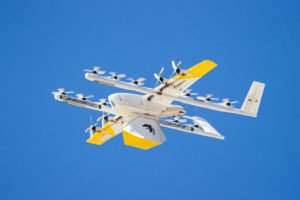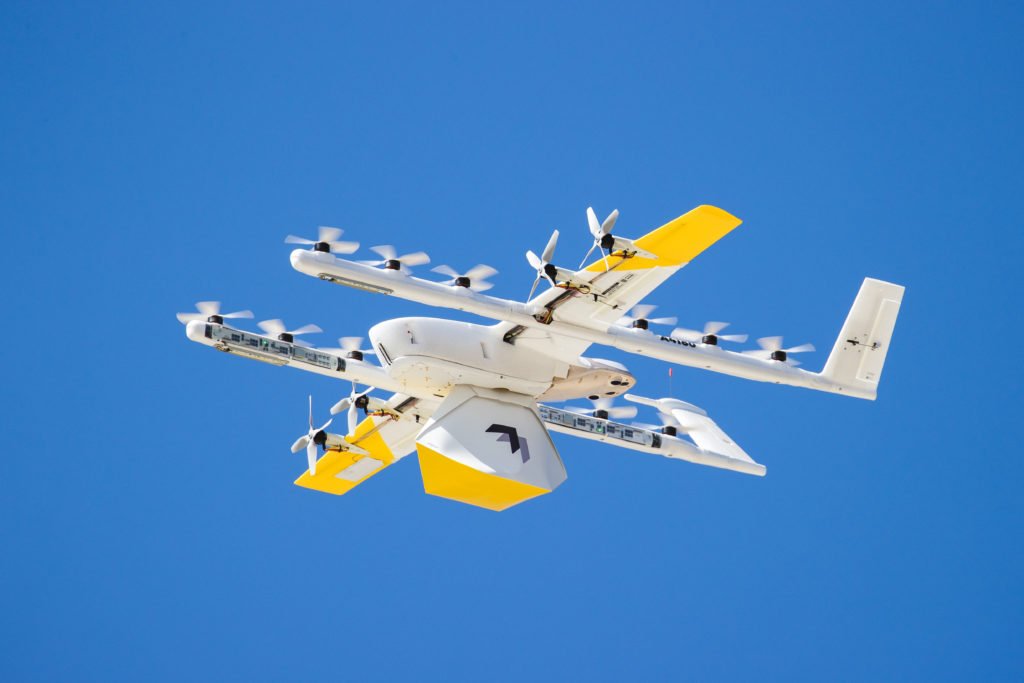
In his testimony, Woodworth laid out 9 factors for Congress to contemplate within the FAA Reauthorization Invoice, a automobile that enables Congress to affect the actions and targets of the company.
In an Op-Ed previewing his testimony, revealed in Aviation Week, Woodworth mentioned that with the intention to keep U.S. management within the drone business, the FAA should develop a regulatory framework that’s “predictable and pragmatic.” From the Op-Ed:
Above all, we’d prefer to see Congress help the FAA in adopting an method to the protected integration of drones into our nationwide airspace that’s two issues: predictable and pragmatic.
The FAA is the fitting regulator for uncrewed plane methods, however the company at the moment regulates Wing’s 11 lb. foam drones utilizing the identical framework that was designed for 400,000 lb. airliners. A lot of these rules make sense for passenger-carrying airplanes, however not for small plane with no individuals onboard.
It’s clear that predictability is a necessity for the event of the drone business. His phrases are paying homage to European Commissioner Henrik Hololei, who mentioned throughout final week’s EASA Excessive Stage Convention on drones {that a} risk-based, predictable framework of rules would be sure that “The European Union will keep on the forefront of the event of the drone business…Europe will probably be a horny and protected place for drone startups and funding.” Within the race to guide the rising business, international locations and areas are competing for startup funding and innovation on the idea of rules.
First on Woodworth’s factors was BVLOS flight, a long-awaited rulemaking from the FAA. Whereas the FAA has granted various waivers to the restriction on flying drones Past Visible Line of Sight, Woodworth factors out in his Op-Ed that waivers are merely not scalable.
The time of flying by waiver/exemption has been helpful, nevertheless it’s inadequate to allow probably the most helpful makes use of for drones. As a nation, we have to transition to flying by rule with the intention to use drones to successfully reply to emergencies, ship meals and medication to homebound residents, survey infrastructure, and assist different industrial drone purposes that depend upon predictable approval processes.
Different factors in Woodworth’s testimony addressed establishing a goal for “acceptable stage of danger” that will assist UAS operators develop applicable security circumstances: “This is able to add much-needed consistency to the method and cut back the arbitrary subjectivity and extreme delays at the moment skilled by operators,” mentioned the testimony assertion.
UAS Certification, incentives for legacy plane to undertake ADS-B expertise, UTM, environmental opinions, and the enlargement of Distant ID to incorporate Community ID expertise had been additionally included in Woodworth’s testimony. And, in a transparent name for extra focused assist for the drone business, Woodworth known as for “Realignment” throughout the FAA which might clearly set up new procedures and processes applicable for uncrewed plane and empower the drone business specialists within the group.
Congress ought to allow the FAA to take a extra direct method with the tons of of hundreds of latest plane operators and stakeholders within the NAS, by elevating and empowering the usIntegration Workplace to streamline and enhance current approval processes throughout the FAA’s organizational construction.
Particularly, Congress ought to embody language within the FAA reauthorization to create a place of Affiliate Administrator to supervise UAS operations and certification, and supply that particular person with the authority to really approve UAS and their operations, whereas guaranteeing applicable session with different traces of enterprise throughout the FAA.
In his testimony assertion, Woodworth mentioned that Wing – and different home drone corporations – want a regulatory framework that may assist their scale right here within the U.S.
Wing has invested an unbelievable period of time, mind energy, and sources into growing and proving out a system that’s able to serving thousands and thousands of shoppers in populated areas throughout the globe. We’re anxious to see the FAA undertake a regulatory framework that may allow us to deliver the advantages of this promising expertise to communities throughout the nation and keep our management within the discipline of rising aviation expertise.
Learn extra:
Miriam McNabb is the Editor-in-Chief of DRONELIFE and CEO of JobForDrones, an expert drone companies market, and a fascinated observer of the rising drone business and the regulatory surroundings for drones. Miriam has penned over 3,000 articles targeted on the industrial drone area and is a world speaker and acknowledged determine within the business. Miriam has a level from the College of Chicago and over 20 years of expertise in excessive tech gross sales and advertising and marketing for brand new applied sciences.
For drone business consulting or writing, E-mail Miriam.
TWITTER:@spaldingbarker
Subscribe to DroneLife right here.

